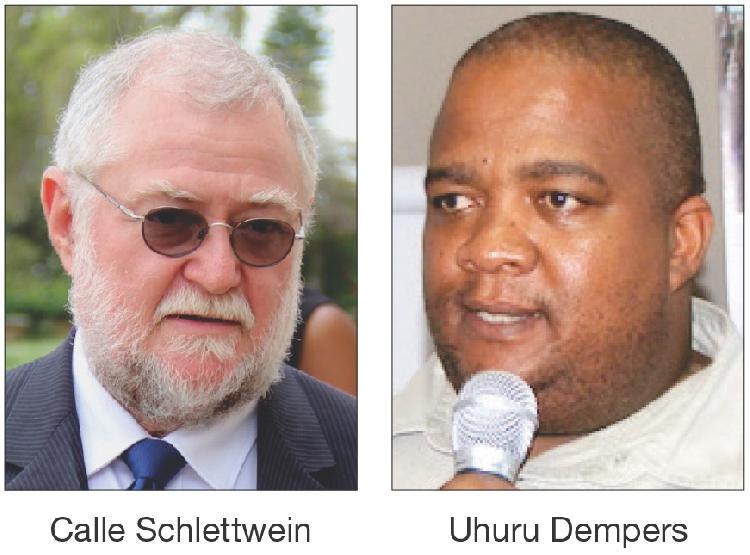Africa-Press – Namibia. • SAKEUS IIKELA
ALMOST five years after the second national land conference, the government says it has only been able to successfully implement 29 of the 167 resolutions taken to turn around the country’s land problems.
The government is also yet to put together a roadmap to implement the recommendation of the commission of inquiry into the claims of ancestral land rights and restitution, almost two years after a final report was submitted to Cabinet.
The 2018 land conference was tasked with reviewing the progress made towards the implementation of the resolutions of the first national land conference in 1991.
Issues of land ownership, complemented by factors such as ancestral land rights and restitution, the willing buyer-willing seller model, the expropriation of agricultural (commercial) land in the public’s interest and the national land reform programme were among the topical discussions at the 2018 event.
Other issues of prime importance include the removal of the veterinary cordon fence and urban land reform and resettlement.
To host the event which was attended by more than 800 delegates, the government forked out more than N$15 million.
Another N$15 million was spent to fund the expenditure of the commission of inquiry into the claims of ancestral land for restitution, established in 2019 as a result of the land summit.
However, after five years of expected implementation, minister of agriculture, water and land reform Calle Schlettwein last week said the government only managed to implement 29 resolutions.
Schlettwein said the government is unable to implement some of the major resolutions because of unspecified legal impediments.
Some of the resolutions on which the government has made little to no progress include the removal of the red line, the abolishment of the willing buyer-willing seller policy, the enactment of the land bill and the expropriation of foreign owned farms, underutilised land, and absentee landlords, among other things.
In a progress report released a year ago, the government said the willing buyer-willing seller policy will not be abolished.
This is because the policy is entrenched in Article 16 of the Constitution, giving people the right to buy and sell property in Namibia, she said.
Under the willing buyer-willing seller policy, the government bought farms at market prices, and had the ‘right of first refusal’ on every farm entering the market.
This approach, however, was costly for the government, and slowed down the pace of the resettlement programme.
Schlettwein said a committee has since been established between his ministry, the Office of the Prime Minister and the attorney general’s office to find a solution to the difficulties identified.
The minister said this while urging staff at his ministry to work around the clock to implement the land conference resolutions.
At that event, Scvhlettwein admitted that the current land reform programme has not been as fast as many expected it to be.
“On land reform, we are still very skewed. Land is not made available to all that were robbed of it, displaced and robbed of a livelihood. That job is still ahead of us. We have the land conference resettlement resolutions that we need to implement. There are tough issues there,” he said.
Schlettwein’s comments come at a time when there are claims that the government’s technical committee, tasked with the monitoring and implementation of the land conference resolutions, has been slacking.
However, the Office of the Prime Minister rejected these claims in a statement issued on Saturday.
According to the statement, 149 land conference resolutions are at different stages of implementation by various government offices and agencies.
SLOW
The director for the Desk for Social Development of the Evangelical Lutheran Church in the Republic of Namibia, Uhuru Dempers, said the implementation of land conference resolutions has been too slow.
He also criticised the government for sleeping on the report of the commission on ancestral land rights and restitution, which was submitted to Cabinet early in 2021.
“The report was released in January last year, and for the ministry or the committee not to have an implementation plan one year later… for us that is slow progress. And we are disappointed by that. What has the ministry been doing from January to October that they can only arrange a workshop in October to come up with an implementation plan?”
He added that the excuse given by the government of legal impediments is also not sufficient, as the ancestral land committee provided possible solutions to those challenges.
However, the Office of the Prime Minister denied sleeping on the ancestral land commission report.
“The assertion that nothing or little has been done since the hosting of the second national land conference is, therefore, incorrect. The impact of land dispossession will take concerted efforts, time and significant resources to be fully addressed. The Government will continue to act with unyielding commitment to ensure full implementation of the resolutions of the land conference so as to achieve equitable land distribution in Namibia,” the prime minister’s office said in a statement.
For More News And Analysis About Namibia Follow Africa-Press






